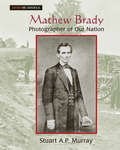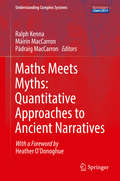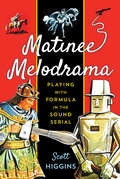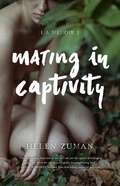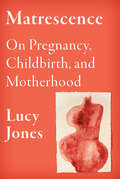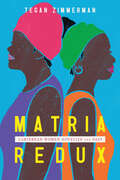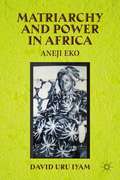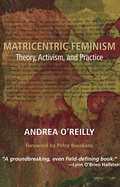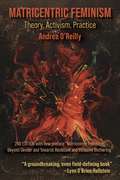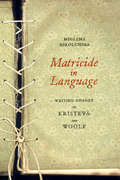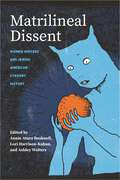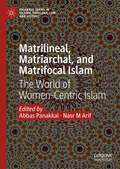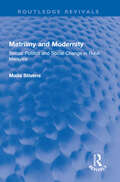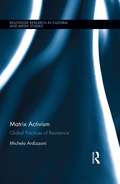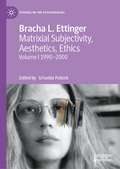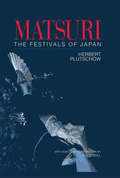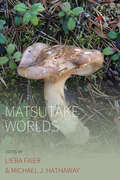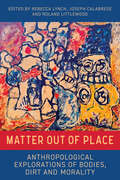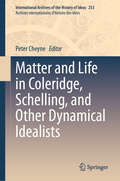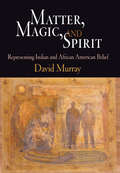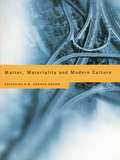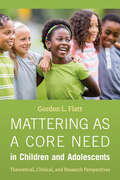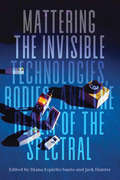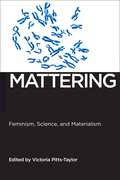- Table View
- List View
Mathesis universalis – Die aktuelle Relevanz der „Strukturen der Lebenswelt“
by Jochen DreherDie Beiträge des Bandes setzen sich mit den „Strukturen der Lebenswelt“ als Analyseinstrument für phänomenologisch-sozialwissenschaftliche Forschungen auseinander. Zum einen werden die „Strukturen der Lebenswelt“ insbesondere Thomas Luckmann zufolge in Anlehnung an Edmund Husserl als mathesis universalis verstanden, die eine elementare Struktur allen menschlichen Verhaltens darstellt und somit als tertium comparationis für die empirische, sozio-historisch ausgerichtete Sozialforschung dient. Die phänomenologische Beschreibung der Lebenswelt muss als „Protosoziologie“ verstanden werden, die das Problem der Vergleichbarkeit historischer Daten löst. Phänomenologie und Soziologie gleichen in diesem Sinne in einer „Parallelaktion“ ihre Erkenntnisse ab, indem die erkenntnistheoretische phänomenologische Fundierung die soziologische empirische Rekonstruktion absichert. Zum anderen wird im Anschluss an Schütz/Luckmann vor allem im US-amerikanischen Kontext die Variante einer „phänomenologischen Soziologie“ vorgeschlagen, die auf das Verstehen, Beschreiben und Analysieren der Lebenswelt abzielt, so wie sie von denjenigen erfahren wird, die in ihr leben. In einer Abgrenzung vom Positivismus und Behaviorismus wird die Suspension der natürlichen Einstellung, die Aufdeckung verdeckter Hintergrundannahmen eingefordert und zum Sehen-der-Phänomene-wie-sie-sind – etwa im Sinne von Harold Garfinkels Ethnomethodologie – aufgerufen.
Mathew Brady: Photographer of Our Nation
by Stuart A MurrayIn a spellbinding account of her two-year teaching stint and travels in China, Woronov provides, through numerous anecdotes, insight into the everyday life of the modern Chinese people. 20 photos.
Maths Meets Myths: Quantitative Approaches to Ancient Narratives
by Ralph Kenna Máirín Maccarron Pádraig MaccarronWith an emphasis on exploring measurable aspects of ancient narratives, Maths Meets Myths sets out to investigate age-old material with new techniques. This book collects, for the first time, novel quantitative approaches to studying sources from the past, such as chronicles, epics, folktales, and myths. It contributes significantly to recent efforts in bringing together natural scientists and humanities scholars in investigations aimed at achieving greater understanding of our cultural inheritance. Accordingly, each contribution reports on a modern quantitative approach applicable to narrative sources from the past, or describes those which would be amenable to such treatment and why they are important. This volume is a unique state-of-the-art compendium on an emerging research field which also addresses anyone with interests in quantitative approaches to humanities.
Matinee Melodrama
by Scott HigginsLong before Batman, Flash Gordon, or the Lone Ranger were the stars of their own TV shows, they had dedicated audiences watching their adventures each week. The difference was that this action took place on the big screen, in short adventure serials whose exciting cliffhangers compelled the young audience to return to the theater every seven days. Matinee Melodrama is the first book about the adventure serial as a distinct artform, one that uniquely encouraged audience participation and imaginative play. Media scholar Scott Higgins proposes that the serial's incoherent plotting and reliance on formula, far from being faults, should be understood as some of its most appealing attributes, helping to spawn an active fan culture. Further, he suggests these serials laid the groundwork not only for modern-day cinematic blockbusters like Star Wars and Raiders of the Lost Ark, but also for all kinds of interactive media that combine spectacle, storytelling, and play. As it identifies key elements of the serial form--from stock characters to cliffhangers--Matinee Melodrama delves deeply into questions about the nature of suspense, the aesthetics of action, and the potentials of formulaic narrative. Yet it also provides readers with a loving look at everything from Zorro's Fighting Legion to Daredevils of the Red Circle, conveying exactly why these films continue to thrill and enthrall their fans.
Mating in Captivity: A Memoir
by Helen ZumanWhen recent Harvard grad Helen Zuman moved to Zendik Farm in 1999, she was thrilled to discover that the Zendiks used go-betweens to arrange sexual assignations, or &“dates,&” in cozy shacks just big enough for a double bed and a nightstand. Here, it seemed, she could learn an honest version of the mating dance—and form a union free of &“Deathculture&” lies. No one spoke the truth: Arol, the Farm&’s matriarch, crushed any love that threatened her hold on her followers&’ hearts. An intimate look at a transformative cult journey, Mating in Captivity shows how stories can trap us and free us, how miracles rise out of crisis, how coercion feeds on forsaken self-trust.
Matrescence: On Pregnancy, Childbirth, and Motherhood
by Lucy JonesLONGLISTED FOR THE WOMEN'S PRIZE FOR NON-FICTION • From the acclaimed author of Losing Eden (&“Powerful, beautifully written&”—Anthony Doerr) an important, moving, passionate and passionately written inquiry—personal and scientific—into what happens—mentally, spiritually, physically, during the process of becoming a mother, from pregnancy and childbirth to early motherhood and what this profound process tells us about the way we live now.&“I read your book, or more accurately devoured it! Loved it . . . It will be the new classic text in Motherhood Studies.&” -Andrea O&’Reilly, founder, Motherhood Studies&“The best book I&’ve ever read about motherhood. Matrescence is essential reading, bloody and alive, roaring and ready to change conversations.&” –Jude Rogers, The Observer (UK) In this important and ground-breaking, deeply personal investigation, Jones writes of the emerging concept of &“matrescence&” – the wholeness of becoming a mother.Drawing on her own experiences of twice becoming a mother, as well as exploring the latest research in the fields of neuroscience and evolutionary biology; psychoanalysis and existential therapy; sociology, economics and ecology, Jones writes of the physical and emotional changes in the maternal mind, body, and spirit and shows us how these changes are far more profound, wild, and enduring than have been previously explored or written about.Part memoir, part scientific and health reporting, part social critique, ecological philosophy, eco-feminism and nature writing, Matrescence is a kind of whodunnit, ferreting out with the most nuanced, searing and honest observations, why mothers throughout this heightened transition are at a breaking point, and what the institution of intensive, isolated motherhood can tell us about our still-dominant social and cultural myths.&“Jones seems to come as close as it&’s possible to describing this indescribable moment in a woman&’s life.&” –Joanna Pocock, The Spectator (UK)
Matria Redux: Caribbean Women Novelize the Past (Caribbean Studies Series)
by Tegan ZimmermanIn Matria Redux: Caribbean Women Novelize the Past, author Tegan Zimmerman contends that there is a need for reading Caribbean women’s texts relationally. This comprehensive study argues that the writer’s turn to maternal histories constitutes the definitive feature of this transcultural and transnational genre. Through an array of Caribbean women’s historical novels published roughly between 1980 and 2010, this book formulates the theory of matria—an imagined maternal space and time—as a postcolonial-psychoanalytic feminist framework for reading fictions of maternal history written by and about Caribbean women. Tracing the development of the historical novel in four periods of the Caribbean past—slavery, colonialism, revolution, and decolonization—this study argues that a pan-Caribbean generation of women writers, of varying discursive racial(ized) realities, has depicted similar matria constructs and maternal motifs. A politicized concept, matria functions in the historical novel as a counternarrative to traditional historical and literary discourses. Through close readings of the mother/daughter plots in contemporary Caribbean women’s historical fiction, such as Andrea Levy’s The Long Song, Edwidge Danticat’s The Farming of Bones, Paule Marshall’s Praisesong for the Widow, and Marie-Elena John’s Unburnable, Matria Redux considers the concept of matria an important vehicle for postcolonial-psychoanalytic feminist literary resistance and political intervention. Matria as a psychoanalytic, postcolonial strategy therefore envisions, by returning to history, alternative feminist fictions, futures, and Caribbeans.
Matriarchy and Power in Africa
by David Uru IyamAneji Eko was technically illiterate, but she represents a resource for understanding the complexities of African and Nigerian cultures. This is an account of matriarchy and the complex ties of kinship, their influences in shaping childhood culture, and how they determined cultural expectations across ethnic groups.
Matricentric Feminism: Theory, Activism, And Practice
by Andrea O'ReillyThe book argues that the category of mother is distinct from the category of woman, and that many of the problems mothers face—social, economic, political, cultural, psychological, and so forth—are specific to women’s role and identity as mothers. Indeed, mothers are oppressed under patriarchy as women and as mothers. Consequently, mothers need a feminism of their own, one that positions mothers’ concerns as the starting point for a theory and politic of empowerment. O’Reilly terms this new mode of feminism matricentic feminism and the book explores how it is represented and experienced in theory, activism, and practice. The chapter on maternal theory examines the central theoretical concepts of maternal scholarship while the chapter on activism considers the twenty-first century motherhood movement. Feminist mothering is likewise examined as the specific practice of matricentric feminism and this chapter discusses various theories and strategies on and for maternal empowerment. Matricentric feminism is also examined in relation to the larger field of academic feminism; here O’Reilly persuasively shows how matricentric feminism has been marginalized in academic feminism and considers the reasons for such exclusion and how such may be challenged and changed.
Matricentric Feminism: Theory, Activism, Practice. The 2nd Edition
by Andrea O'ReillyThe 2nd edition includes a new preface that considers how matricentric feminism in positioning mothering as a verb affords a gender-neutral understanding of motherwork and allows for an appreciation of how motherwork is deeply gendered and how this may be challenged and changed through empowered mothering The book argues that the category of mother is distinct from the category of woman, and that many of the problems mothers face are specific to women's role and identity as mothers. Indeed, mothers are oppressed under patriarchy as women and as mothers. Consequently, mothers need a feminism of their own, one that positions mothers' concerns as the starting point for a theory and politic of empowerment. O'Reilly terms this new mode of feminism matricentic feminism and the book explores how it is represented and experienced in theory, activism, and practice.
Matricide in Language: Writing Theory in Kristeva and Woolf
by Miglena NikolchinaThe nexus of psychoanalytic, literary, and philosophical approaches in this book focuses on an intertextual reading of Woolf and Kristeva in order to address the enigma of the persistent suppression of women's contributions to culture. In spite of the efforts of feminist theory and history to turn the tide, this process is with us still. "I am the first of a new genus" (Mary Wollstonecraft). "When I looked around, I saw and heard of none like me" (Mary Shelley). "I look everywhere for grandmothers and find none" (Elizabeth Barrett Browning). "Why isn't there a tradition of the mothers?" (Virginia Woolf). "Women have 'no past, no history'" (Simone de Beauvoir). "I look for myself throughout the centuries and I don't see myself anywhere" (Helene Cixous). As Woolf noted, "strange spaces of silence" separate the solitary female utterances throughout history. The brutal vicissitudes of the contemporary reception of feminist thinkers, crushed between traditional academia and an anti-intellectualism that describes itself as activism, are symptoms of the fact that the conditions, which produced the "strange spaces of silence" and made the repetitive generic loneliness from Wollstonecraft to Cixous possible, are still operative. They have found their way into the present age as "reactionary conformity that manages to discredit any notion of feminine specificity or freedom that is not based on seduction–which means not based on reproduction and consumption" (Kristeva).The intertextual approach to Kristeva and Woolf brings to light "matricide" as the silent engine behind the stammering of female temporality. "Matricide" is offered as an entrance to the conceptualization of the cultural ramifications of a language that wavers between hypnotic passion and murder. As Joan Scott has demonstrated, the oscillations between phantasies of uniqueness and phantasies of fusion are characteristic of women's movements. Matricide in Language claims that these fantasies are subtended by imaginary matricide and that they can explain the extreme discursive practices that are characteristic of the debate in and around feminism.
Matrilineal Dissent: Women Writers and Jewish American Literary History
by Josh Lambert Tahneer Oksman Rachel Rubinstein Jennifer Glaser Jessica Kirzane Karen Skinazi Alex UllmanBridging literary studies and cultural history, this edited volume examines Jewish women writers’ wide-ranging contributions to American literary culture from the turn of the twentieth century to the present. Matrilineal Dissent features innovative considerations of contemporary autofiction, graphic narratives, and novels by Mizrahi writers as well as middlebrow, Progressive Era, and second-wave feminist literature. Authors discussed herein—such as Roz Chast, Erica Jong,Annie Nathan Meyer, and Adrienne Rich—challenge monolithic representations of Jewishness and gender while imagining radical alternatives. By drawing attention to the politics of these authors and their readers, texts emerge as tools and living practices rather than as ends in themselves. Collectively, contributors reframe Jewish American literary history through feminist approaches that have revolutionized the field, from intersectionality and the #MeToo movement to queer theory and disability studies. Examining both canonical and lesser-known texts, this collection invites questions about conventional understandings of Jewish American literature when we center women’s writing and acknowledge women as dominant players in Jewish cultural production.
Matrilineal, Matriarchal, and Matrifocal Islam: The World of Women-Centric Islam (Palgrave Series in Islamic Theology, Law, and History)
by Nasr M Arif Abbas PanakkalAround the world, Islamic cultures have developed distinctive matrilineal, matrifocal, matrilocal, or matriarchal natures as a result of how they have been practised by integrated and indigenised Muslim communities. In matrilineal descent systems, in contrast to the more common mosaic of patrilineal patterns, children belong to the mother’s ancestry group. Matrilineal Muslims therefore follow a social system in which people are identified with their mother's lineage, and the inheritance of property as well as succession are transferred through the matriline. This volume focuses on matrilineal, matrifocal and matriarchal Muslims and their unique folk natures, integrated social structures, adopted legal systems, and so on. It provides a unique perspective for understanding global Muslim communities that have succeeded in integrating the matrilineal tenets of local practices with religion, adhering to essential Islamic values in a way that makes traditional women-centred cultures acceptable to mainstream Islam.
Matriliny and Modernity: Sexual Politics and Social Change in Rural Malaysia (Routledge Revivals)
by Maila StivensMatriliny and Modernity (1996) explores the situation both past and present of women living in the matrilineal society of Negeri Sembilan in a rapidly modernising Malaysia. Written from a feminist anthropological viewpoint, it considers how far both the colonial and post-colonial remakings of matrilineal cultural practices within modernity have left women with what many western feminists would call a degree of social agency if not autonomy. Maila Stivens looks critically at the appropriateness of such judgements, at the same time reflecting on the ways that western knowledge production and the continuing importance of images of exotic matriarchies in the western imagination have shaped debates about such societies. As well as appealing to those with an interest in issues of gender-and-development, Asian Studies and women’s situation in modernising societies, the book’s explanation of the past and present of relatively more egalitarian gender arrangements also contributes to wider debates about causes of sexual inequality and the possibilities for gender equality.
Matrix Activism: Global Practices of Resistance (Routledge Research in Cultural and Media Studies)
by Michela ArdizzoniThe intersection of virtual and physical spaces at the heart of contemporary political protests is a pivotal element in new practices of activism. In this new and global ecology of dissent and activism, different forces, stakeholders, and spaces, once defiantly discordant, come together to define the increasingly malleable nature and terms of participatory politics and the performance of democracy. This book explores the emerging sites, aesthetics and politics of contemporary dissent as a critical attempt to foreground their mediation and negotiation in an era of neoliberal globalization. Contemporary forms of media activism occupy deeply ambivalent spaces, which Ardizzoni analyzes using the lens of what she calls "matrix activism." Rather than confining the analysis to a single platform, a single technology, or a single social actor, matrix activism allows us to explain the hybrid nature of new forms of dissent and resistance, as they are located at the intersection of alternative and mainstream, non-profit and corporate, individual and social, production and consumption, online and offline.
Matrixial Subjectivity, Aesthetics, Ethics: Volume 1 1990–2000 (Studies in the Psychosocial)
by Bracha L. EttingerThis book is the first of two volumes that, together, present for the first time a comprehensive collection of three decades of the theoretical writings of artist and theorist Bracha L Ettinger. Edited and introduced by Griselda Pollock they provide a systematic anthology of Ettinger’s path-breaking and influential concept of Matrixial subjectivity-as-encounter and jointness-in-difference, and chart her radical intervention in aesthetics, ethics and theories of subjectivity far beyond classical feminist and current gender/queer theory.This first volume includes the writings in which Ettinger elaborates her original concepts of Matrixial space-time and metramorphosis, fascinance, wit(h)nessing, resonance, transcryptum, com-passion, self-fragilization and resistance, co-emergence and copoiesis transform theories of the subject, Eros, alliance and love, sexual difference, alterity, relationality, trauma and violence. Her critical dialogue with theorists including Levinas, Lacan, Lyotard and Deleuze & Guattari, Butler, Cavarero and Irigaray is evident here.A leading authority on Matrixial theory, Griselda Pollock provides explanatory prefaces to each chapter and a lengthy introduction that situates Ettinger’s work in relation to socio-psychoanalytical theory and practice and current social and philosophical debates. Ettinger’s interlacing of psychoanalysis, ethics, and aesthetics can be seen here to address some of the deepest challenges of our social, cultural and political existence today.
Matsuri: With a Selection from P.G. O'Neill's Photographic Archive of Matsuri
by Herbert PlutschowContribution to Western understanding of the nature and manifestations of Shinto through the vast galaxy of historic festivals (matsuri) that are here categorized and analysed.
Matsutake Worlds (Studies in Social Analysis #12)
by Lieba Faier and Michael J. HathawayThe matsutake mushroom continues to be a highly sought delicacy, especially in Chinese, Japanese, and Korean cuisine. Matsutake Worlds explores this mushroom through the lens of multi-species encounters centered around the matsutake’s notorious elusiveness. The mushroom’s success, the contributors of this volume argue, cannot be accounted for by any one cultural, social, political, or economic process. Rather, the matsutake mushroom has flourished as the result of a number of different processes and dynamics, culminating in the culinary institution we know today.
Matter Out of Place: Anthropological Explorations of Bodies, Dirt and Morality
by Roland Littlewood Rebecca Lynch, Joseph CalabreseAnthropologists often use ‘pollution’ to refer to social and individual challenges to a cultural idea of purity, which may be seen in terms of religious practice, foodstuffs and social differentiation. It has been used as a trope to explore ideas of dirt and place, moral inversion and reinforcement, disgust and taboo. The book is an invitation to consider the continued relevance of Mary Douglas’ conceptualization of pollution and dirt as ‘matter out of place’ in relation to contemporary circumstances. Its ethnographic and theoretical contributions cover diverse contexts, ranging from Europe to Africa, the Caribbean, India and Outer Space.
Matter and Life in Coleridge, Schelling, and Other Dynamical Idealists (International Archives of the History of Ideas Archives internationales d'histoire des idées #253)
by Peter CheyneThis book, written by renowned historians of philosophy, literature, and science, provides a distinctively interdisciplinary work on matter and life in early-modern Germany and Britain (1600–1850). It interrelates key theories of matter and the life sciences from Jakob Böhme, Ralph Cudworth, G. W. Leibniz, Anthony Cooper (Shaftesbury), Immanuel Kant, J. W. Goethe, Novalis, Friedrich Schelling, G. W. F. Hegel, S. T. Coleridge, and Arthur Schopenhauer. Schelling’s centrality in the philosophy of nature is highlighted but also Coleridge’s role in importing and adapting German philosophical and scientific insights into the domain of British science runs through the book. At the core of this original project is an interrelated and interdependent analysis of Cambridge Platonism, German idealism, and British romanticism. Under the umbrella term of ‘dynamical idealists’, the editor of the volume refers to investigators of the vital energy of nature who characteristically combined the tradition of early-modern speculative idealism with enquiries into an experiential study of nature involving mysticism, chemistry, and empirical accounts of physical matter. Significantly, several chapters concentrate on the relationships between human will, agency, freedom, and God, shedding light on modern conceptions of subjectivity and selfhood. All of the above makes this book of great value to historians of philosophy, literature, and science.
Matter, Magic, and Spirit
by David MurrayThe spiritual and religious beliefs and practices of Native Americans and African Americans have long been sources of fascination and curiosity, owing to their marked difference from the religious traditions of white writers and researchers. Matter, Magic, and Spirit explores the ways religious and magical beliefs of Native Americans and African Americans have been represented in a range of discourses including anthropology, comparative religion, and literature. Though these beliefs were widely dismissed as primitive superstition and inferior to "higher" religions like Christianity, distinctions were still made between the supposed spiritual capacities of the different groups.David Murray's analysis is unique in bringing together Indian and African beliefs and their representations. First tracing the development of European ideas about both African fetishism and Native American "primitive belief," he goes on to explore the ways in which the hierarchies of race created by white Europeans coincided with hierarchies of religion as expressed in the developing study of comparative religion and folklore through the nineteenth century. Crucially this comparative approach to practices that were dismissed as conjure or black magic or Indian "medicine" points as well to the importance of their cultural and political roles in their own communities at times of destructive change.Murray also explores the ways in which Indian and African writers later reformulated the models developed by white observers, as demonstrated through the work of Charles Chesnutt and Simon Pokagon and then in the later conjunctions of modernism and ethnography in the 1920s and 1930s, through the work of Zora Neale Hurston, Zitkala Sa, and others. Later sections demonstrate how contemporary writers including Ishmael Reed and Leslie Silko deal with the revaluation of traditional beliefs as spiritual resources against a background of New Age spirituality and postmodern conceptions of racial and ethnic identity.
Matter, Materiality and Modern Culture
by P.M. Graves-BrownMatter, Materiality and Modern Culture offers a new approach to the study of contemporary objects, to give the reader a new understanding of the relationship between people and their material world. It asks how the very stuff of our world has shaped our societies by addressing a broad array of questions including: * why do Berliners have such strange door keys? * should the Isle of Wight pop festival be preserved? * could aliens tell a snail shell from a waste paper basket * why did Victorian England make so much of death and burial?
Mattering as a Core Need in Children and Adolescents: Theoretical, Clinical, and Research Perspectives
by Gordon L. FlettThis book summarizes the psychological research on the concept of mattering in children and adolescents, and outcomes associated with the presence or absence of feelings of being valued by others. Mattering, the felt experience of being valued and necessary to others, is a unique and complex psychological construct. Differences in children&’s sense of mattering to their family, friends, and significant others predict consequential outcomes at the individual, relationship, and societal levels. Gordon Flett offers important, evidence-based insights from the psychological literature, drawing clear links between a lack of mattering and measures of children's depression, anxiety, suicide risk, aggression and violence. Conversely, he shows how mattering to others is reflected in measures of resilience, adaptability, motivation, and performance. Crucial links are also explored between social marginalization and mattering, and case material is used throughout the book to illustrate key points. The clinical chapters describe mental health interventions that measure and address issues related to children&’s sense of mattering in family, school, and community contexts.
Mattering the Invisible: Technologies, Bodies, and the Realm of the Spectral
by Diana Espírito Santo and Jack HunterExploring how technological apparatuses “capture” invisible worlds, this book looks at how spirits, UFOs, discarnate entities, spectral energies, atmospheric forces and particles are mattered into existence by human minds. Technological and scientific discourse has always been central to the nineteenth- and early twentieth-century spiritualist quest for legitimacy, but as this book shows, machines, people, and invisible beings are much more ontologically entangled in their definitions and constitution than we would expect. The book shows this entanglement through a series of contemporary case studies where the realm of the invisible arises through technological engagement, and where the paranormal intertwines with modern technology.
Mattering: Feminism, Science, and Materialism (Biopolitics #1)
by Victoria Pitts-TaylorFeminists today are re-imagining nature, biology, and matter in feminist thought and critically addressing new developments in biology, physics, neuroscience, epigenetics and other scientific disciplines. Mattering, edited by noted feminist scholar Victoria Pitts-Taylor, presents contemporary feminist perspectives on the materialist or ‘naturalizing’ turn in feminist theory, and also represents the newest wave of feminist engagement with science. The volume addresses the relationship between human corporeality and subjectivity, questions and redefines the boundaries of human/non-human and nature/culture, elaborates on the entanglements of matter, knowledge, and practice, and addresses biological materialization as a complex and open process. This volume insists that feminist theory can take matter and biology seriously while also accounting for power, taking materialism as a point of departure to rethink key feminist issues. The contributors, an international group of feminist theorists, scientists and scholars, apply concepts in contemporary materialist feminism to examine an array of topics in science, biotechnology, biopolitics, and bioethics. These include neuralplasticity and the brain-machine interface; the use of biometrical identification technologies for transnational border control; epigenetics and the intergenerational transmission of the health effects of social stigma; ADHD and neuropharmacology; and randomized controlled trials of HIV drugs.A unique and interdisciplinary collection, Mattering presents in grounded, concrete terms the need for rethinking disciplinary boundaries and research methodologies in light of the shifts in feminist theorizing and transformations in the sciences.

